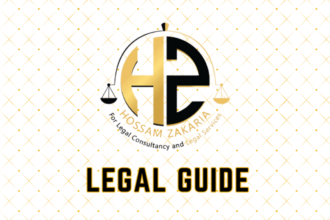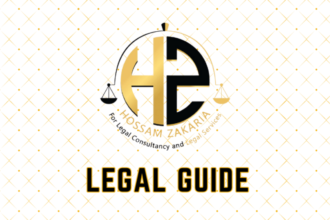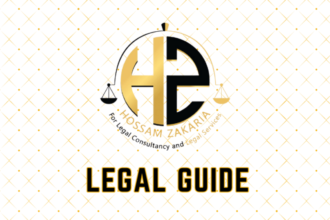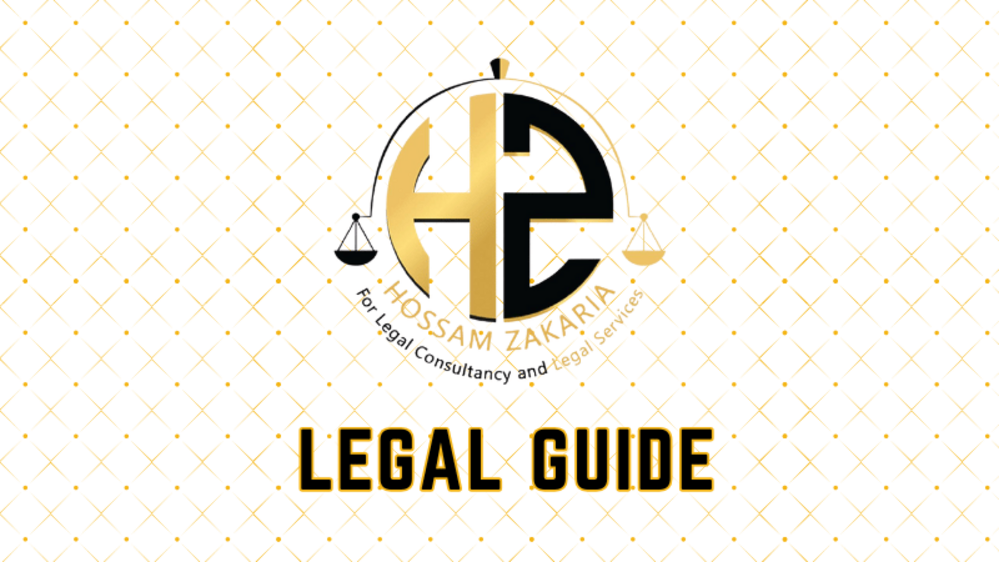Introduction
As the United Arab Emirates continues its rapid evolution as a premier global business hub, the efficacy and credibility of its dispute resolution mechanisms remain paramount. Arbitration, favored for its confidentiality, speed, and flexibility, has become a cornerstone for both domestic and international parties settling commercial disputes in the UAE. With recent legal updates, especially those introduced under Federal Law No. 6 of 2018 on Arbitration and subsequent Cabinet Resolutions through 2024, understanding current procedures and the criteria for appointing arbitrators is essential for companies, executives, and legal practitioners operating in or with the UAE.
This article provides a comprehensive consultancy-grade analysis of arbitration in the UAE, focusing on procedural requirements, arbitrator appointment in 2025, key updates, compliance considerations, and practical strategies for businesses. Drawing from verified sources including the Ministry of Justice, Federal Legal Gazette, and UAE Government Portal, the analysis offers actionable guidance tailored for decision-makers and in-house legal teams anticipating or engaging with arbitration processes.
Table of Contents
- Overview of UAE Arbitration Law 2025 Updates
- Core Procedural Features of Arbitration in the UAE
- Arbitrator Appointment Process in 2025
- Recent Legal Updates and Their Impact
- Comparative Analysis: Old vs New Arbitration Law
- Practical Case Studies and Hypotheticals
- Risks of Non-Compliance and Compliance Strategies
- Best Practices for Organizations
- Conclusion: Navigating Arbitration in the Evolving UAE Legal Landscape
Overview of UAE Arbitration Law 2025 Updates
Legal Framework From 2018 to 2025
The foundation of arbitration in the UAE was profoundly strengthened by Federal Law No. 6 of 2018 (the “Arbitration Law”), which modernized the arbitral process and aligned it with international standards such as the UNCITRAL Model Law. In the years leading to 2025, further clarifications and procedural enhancements have been introduced via Cabinet Resolutions and regulatory guidance, impacting practical elements such as the appointment of arbitrators, interim measures, enforceability of awards, and legal representation.
Key Legal Sources
- Federal Law No. 6 of 2018 on Arbitration (as amended)
- Cabinet Resolution No. 57 of 2018 (Civil Procedure Code Executive Regulations)
- Ministerial Guidelines on Licensing and Registration of Arbitrators (latest update: 2024)
The Arbitration Law applies both to arbitrations seated in the UAE and, in some circumstances, to those conducted abroad if parties agree. The law grants parties autonomy in structuring arbitral proceedings while ensuring judicial oversight remains balanced and efficient.
Core Procedural Features of Arbitration in the UAE
Main Procedural Steps
Understanding the typical lifecycle of UAE arbitration provides clarity for organizations contemplating or managing disputes. The process is characterized by several key phases:
- Arbitration Agreement Formation: Enshrined in contract clauses or standalone agreements; must be in writing as per Article 7 (Federal Law No. 6/2018).
- Commencement of Proceedings: Initiated via notice to the respondent and the chosen arbitral institution or ad hoc mechanism.
- Constitution of Arbitrator(s): Involves appointment (see below), challenge procedures, and confirmation of impartiality.
- Preliminary Hearing and Timetable Setting: Setting out claim submissions, evidence exchange, hearings, and deadlines.
- Substantive Hearings: Presentation of evidence, witness examination, legal arguments – may be physical or virtual (as updated in 2021-2024, remote hearings are expressly allowed).
- Award Issuance: Written, reasoned arbitral award delivered within stipulated timelines. Form and content regulated to ensure enforceability [Articles 41-43, Federal Law No. 6/2018].
- Enforcement or Challenge: Recognition and enforcement may be sought before UAE Courts; annulment applications are strictly time-limited (Article 54, Federal Law No. 6/2018).
Visual Suggestion: A step-by-step flowchart of the UAE arbitration process would illustrate these stages effectively.
Notable Compliance Requirements
- All agreements must be signed by authorized parties.
- Arbitral awards must comply with mandatory public policy and legal form.
- Timeliness in submissions and compliance with procedural orders is critical to avoid adverse costs or dismissal of claims.
Arbitrator Appointment Process in 2025
Legal Basis for Appointment
The appointment of arbitrators is governed by Articles 10-15 of the Federal Law No. 6/2018 and further clarified by Cabinet Resolutions and the procedural rules of leading UAE arbitral institutions (such as DIAC, ADCCAC, and the DIFC-LCIA, where applicable). Several fundamental principles underpin the appointment process:
- Independence and Impartiality: Arbitrators must disclose any circumstance giving rise to doubts as to independence (Article 10/2018).
- Nationality Limitations: Unless agreed otherwise, no sole arbitrator or presiding arbitrator should share the same nationality as either party.
- Accreditation and Registry: The Ministry of Justice Arbitration Register, last updated in 2024, specifies eligibility for court-confirmed appointments and institutional rosters.
- Procedural Rules: Default mechanisms exist if parties fail to agree on arbitrator selection: the competent court or arbitral institution will appoint, usually within 15-30 days.
Recent Regulatory Guidance (2024–2025)
Ministerial Guidelines issued in 2024 introduced clearer standards for arbitrator qualifications, ethical compliance, and grounds for challenge/disqualification. Notably:
- Express recognition of remote hearings and documentation for appointments.
- Requirement for detailed CVs, professional conduct assurances, and registration with the Ministry of Justice for arbitrators dealing with domestic arbitrations or court-involved appointments.
- Published blacklists for those disqualified or sanctioned for misconduct.
Practical Steps for Appointment
- Nomination by Parties: Each party proposes its arbitrator; in three-member tribunals, they jointly appoint the presiding arbitrator.
- Institutional Confirmation: Preferred in institutional arbitrations (e.g., DIAC).
- Court Intervention: If a party or arbitrator is not nominated within the stipulated period, the competent UAE court or institution intervenes (Article 11).
- Declarations: Arbitrators must submit compromised interest declarations and agree to ethical codes.
Visual Suggestion: A compliance checklist detailing documentation required for arbitrator appointments, including required declarations and registry confirmation.
Recent Legal Updates and Their Impact
Notable Developments through 2025
- Remote Arbitration: From 2021, remote procedural hearings were expressly recognized, with further Ministry guidance (2024) supporting digital signature and filing of arbitral appointment paperwork.
- Enhanced Supervisory Powers: Courts have clarified their role in appointing or removing arbitrators and hastening preliminary proceedings where parties stall tribunals’ formation.
- Accreditation and Blacklisting: More robust processes for arbitrator background checks, regular publication of accredited arbitrators, and transparency for disciplinary action.
Practical Effects for Organizations
These reforms serve a dual purpose: strengthening procedural certainty for foreign investors and increasing accountability for arbitrators and legal advisors. For businesses, this increases predictability but also places heavier compliance burdens on parties, especially when appointing arbitrators or challenging appointments.
Institution-Specific Rules
- Dubai International Arbitration Centre (DIAC): Revised its Arbitration Rules to reflect Federal guidance on appointment and challenge.
- Abu Dhabi Commercial Conciliation and Arbitration Centre (ADCCAC): Aligns with federal updates, but allows for local customization in some areas.
Visual Suggestion: Table comparing institutional requirements and timetables for arbitrator appointment.
Comparative Analysis: Old vs New Arbitration Law
Understanding legal evolution is critical for compliance-minded organizations. The following table summarizes the key differences between pre-2018 and 2025 arbitration rules in the UAE:
| Feature | Pre-2018 Law (Civil Procedure Code) | Current Law (2018–2025) |
|---|---|---|
| Arbitration Agreement Formality | Vague, sometimes oral or implied | Must be written and signed by authorized representative (Article 7 of 6/2018) |
| Arbitrator Appointment | No set timeframe for appointment, qualifications unclear | Clear timeframe (15–30 days), mandatory registry for certain disputes, qualification standards enhanced |
| Remote Participation | Implicit only; often contested | Explicitly permitted for hearings, appointment, signatures (2021–2024 updates) |
| Award Enforcement | Burdensome, frequent delays, local court validation mandatory | Streamlined enforcement, fast-track procedures (Articles 52-57 of 6/2018) |
| Challenge to Awards | Very broad, prolonged | Limited, strict timelines for challenge (60 days, Article 54) |
Key Compliance Takeaway: Modern procedures require proactive contract drafting and documentation compliance from the outset.
Practical Case Studies and Hypotheticals
Case Study 1: Failure to Register Arbitrator
A multinational contractor appoints an arbitrator not listed on the Ministry of Justice’s 2024 accredited register. The respondent challenges the appointment, asserting non-compliance with regulatory requirements. The arbitral institution rules in favor of the challenge, enforcing the credibility of the registry and requiring the claimant to propose a compliant arbitrator. This leads to delays and cost implications for the claimant.
Case Study 2: Remote Hearings Application
A logistics company invokes a contractual arbitration clause amidst urgent pandemic-related restrictions. Both parties agree to remote hearings, leveraging the updated guidelines. The tribunal is able to adhere to statutory timelines for issuing the award, showcasing benefits of the technology-friendly regulatory environment. No challenge to the process is entertained, as parties followed the new digital compliance procedures.
Hypothetical: Non-compliance with Award Form
If an award does not contain reasons or fails to reference the arbitration agreement as now mandated, a losing party may challenge its enforcement in the UAE courts, leading potentially to annulment. Meticulous compliance with formal requirements is thus essential to avoid the business risk of unenforceable awards.
Visual Suggestion: Infographics illustrating these scenarios can clarify key compliance pitfalls.
Risks of Non-Compliance and Compliance Strategies
Major Risks for Businesses
- Nullification of Arbitral Award: Non-compliance with formal requirements (e.g., in arbitrator appointment, award drafting) may be grounds for annulment under Article 53 of the Arbitration Law.
- Delay and Additional Costs: Disqualified arbitrators and procedural irregularities often lead to lost time and increased legal expense.
- Loss of Confidentiality and Legal Certainty: Breaches in due process may expose confidential business information in open court during challenges or enforcement scenarios.
Checklist for Arbitration Readiness
| Compliance Area | Action Item |
|---|---|
| Arbitration Agreement | Ensure it is in written form, signed, with an effective appointment mechanism |
| Arbitrator Nomination | Verify arbitrator is on the UAE Ministry of Justice’s current accredited list |
| Remote Hearing | Ensure protocol is agreed in writing and meets latest procedural guidelines |
| Award Drafting | Check all statutory content and form requirements are met before signature |
Strategies to Mitigate Risk
- Draft arbitration clauses with legal guidance, anticipating UAE regulatory nuances
- Undertake due diligence before arbitrator nomination
- Engage with reputable arbitration institutions to oversee appointment and procedure
- Maintain documentary records for all appointment, challenge, and compliance steps
Best Practices for Organizations
Contract Drafting and Clause Review
Well-drafted arbitration clauses are the first line of defense. Engagement with legal counsel at the contract negotiation stage, especially for cross-border transactions, ensures conformity with UAE law and up-to-date procedural standards.
Internal Training
Regular training for compliance, contracts, and legal teams on the evolving requirements for appointment and conduct of arbitrators is recommended, particularly focusing on registry updates and digital procedure changes.
Proactive Use of Institutional Arbitration
Whenever possible, adopt institutional arbitration (such as through DIAC), which provides more predictable appointment and procedural support, minimizing risks of non-compliance that are more prevalent in ad hoc proceedings.
Leveraging Technology Responsibly
Implement secure platforms for remote hearings, document filing, and arbitrator selection to maximize the flexibility and continuity offered by regulatory updates. Cybersecurity policies must be observed to maintain confidentiality and data integrity.
Conclusion: Navigating Arbitration in the Evolving UAE Legal Landscape
The UAE’s recent arbitration reforms underscore its commitment to modern dispute resolution that attracts foreign investment while supporting domestic economic activity. For business leaders—be they in multinational corporations or UAE-based enterprises—remaining compliant and responsive to the latest legal changes is non-negotiable.
Interpretation of arbitration procedure and arbitrator appointment in 2025 goes far beyond box-ticking or routine compliance; it is about strategic, proactive legal risk management. Engage expert legal advisers at every stage—from contract drafting to award enforcement—to ensure dispute resolution clauses are an asset, not a liability, as the UAE continues to upgrade its legal infrastructure. The proactive adoption of best practices in arbitrator selection, clause drafting, and digital compliance will decisively minimize risk and maximize certainty in today’s fast-evolving regulatory environment.
To stay ahead of further updates, subscribe to official notifications from the Ministry of Justice, or engage a trusted legal consultancy specialized in UAE dispute resolution. This not only safeguards your contracts and commercial outcomes but also contributes to the robust legal ecosystem supporting the UAE’s global ambitions.



